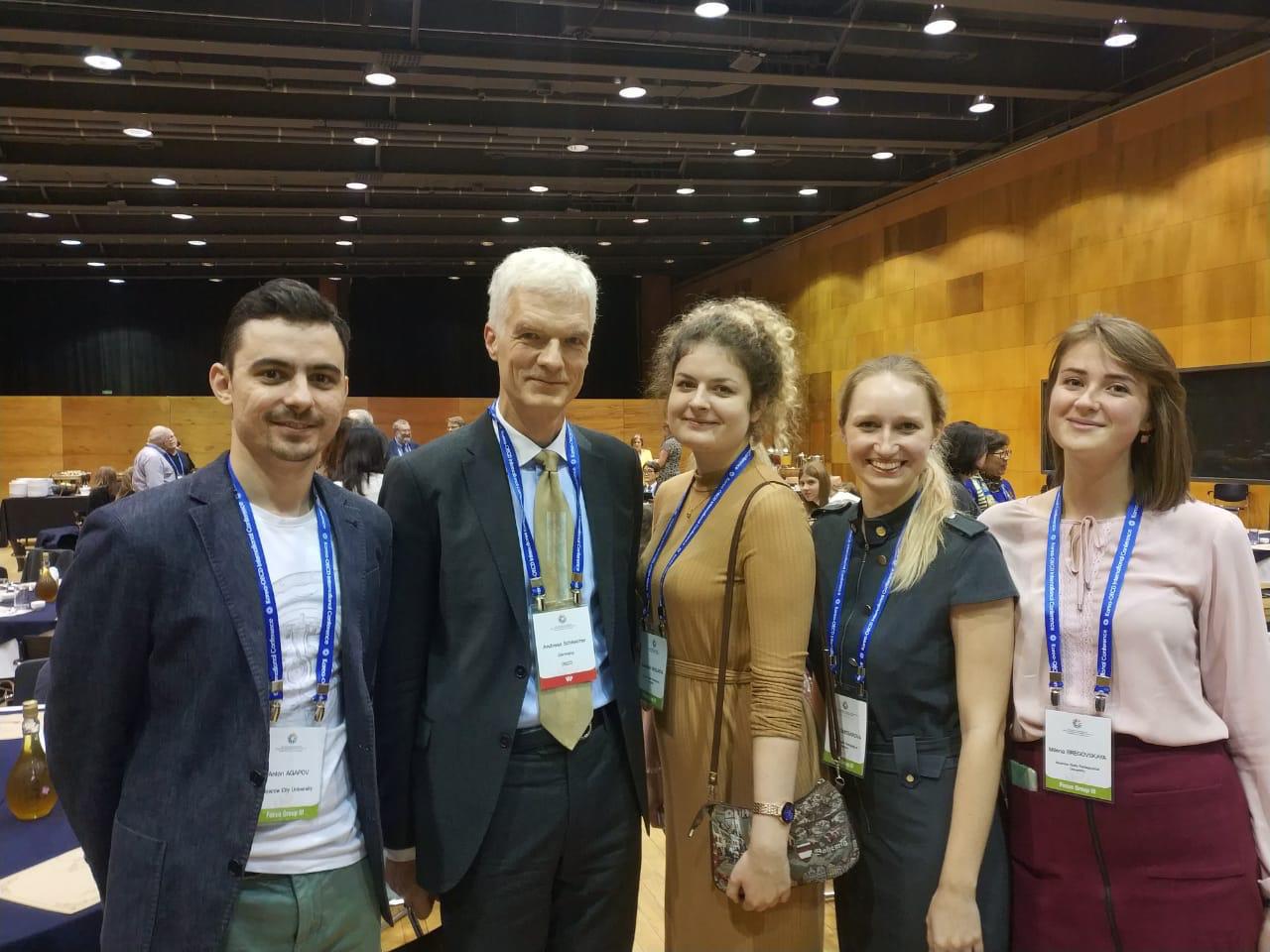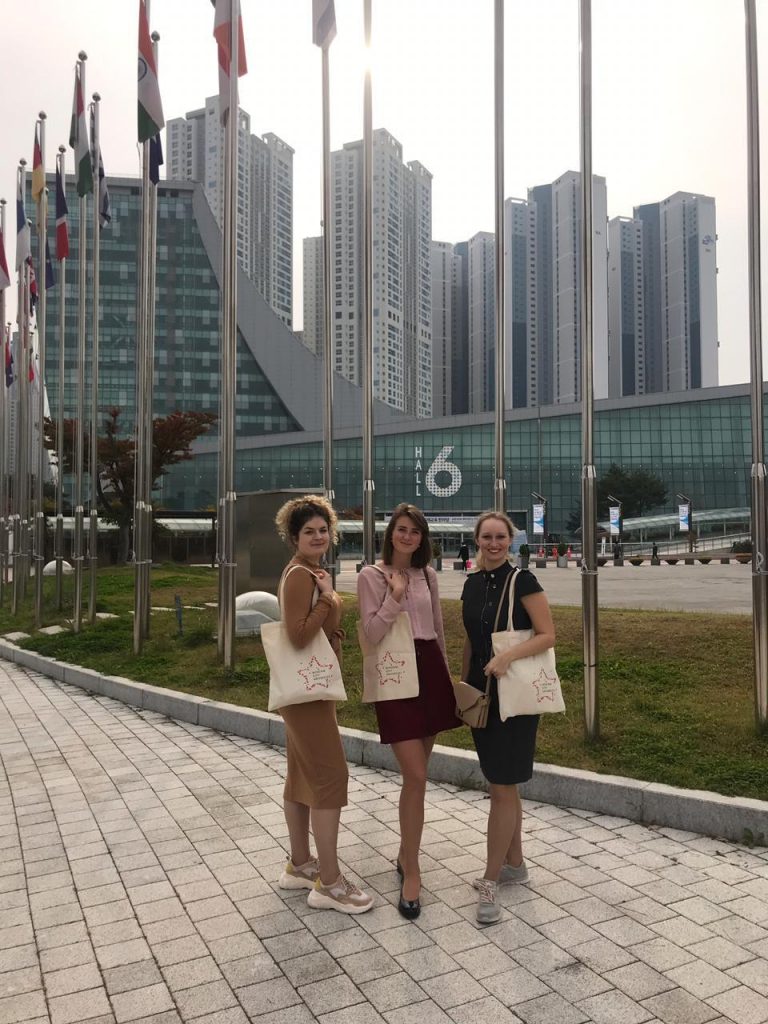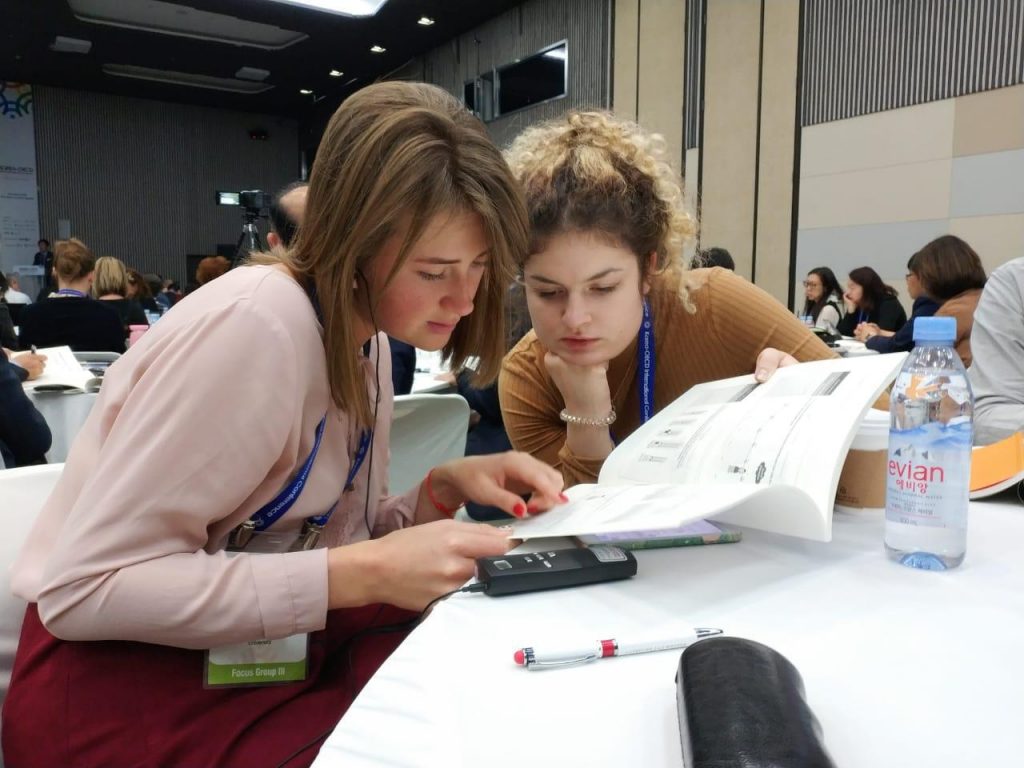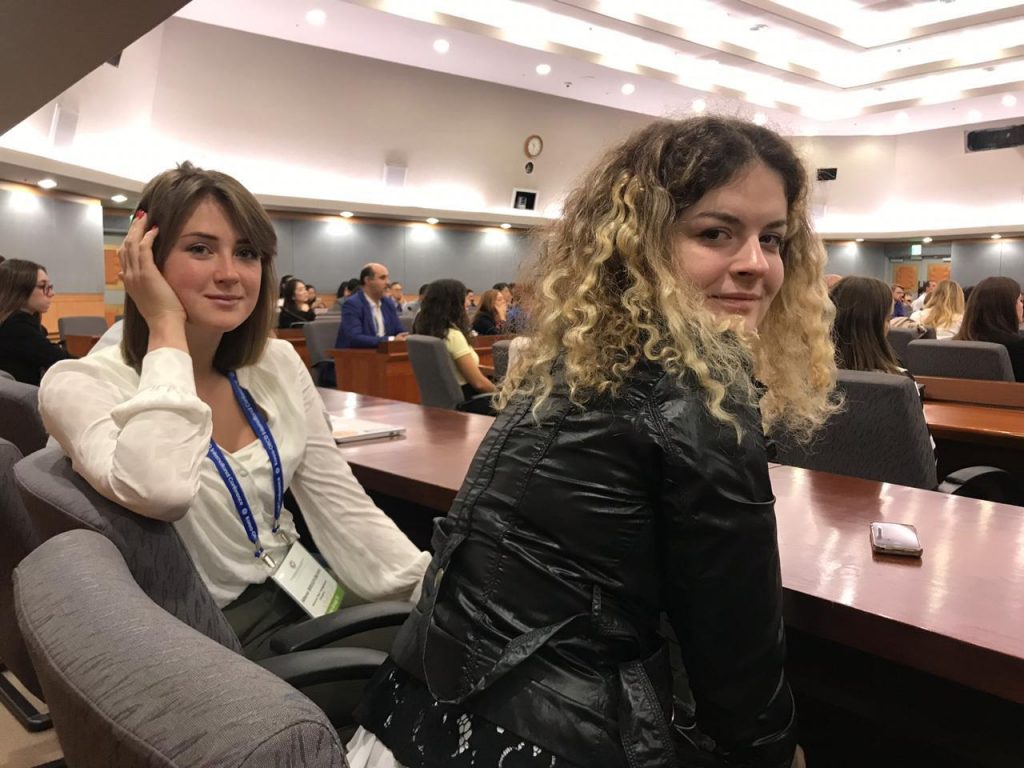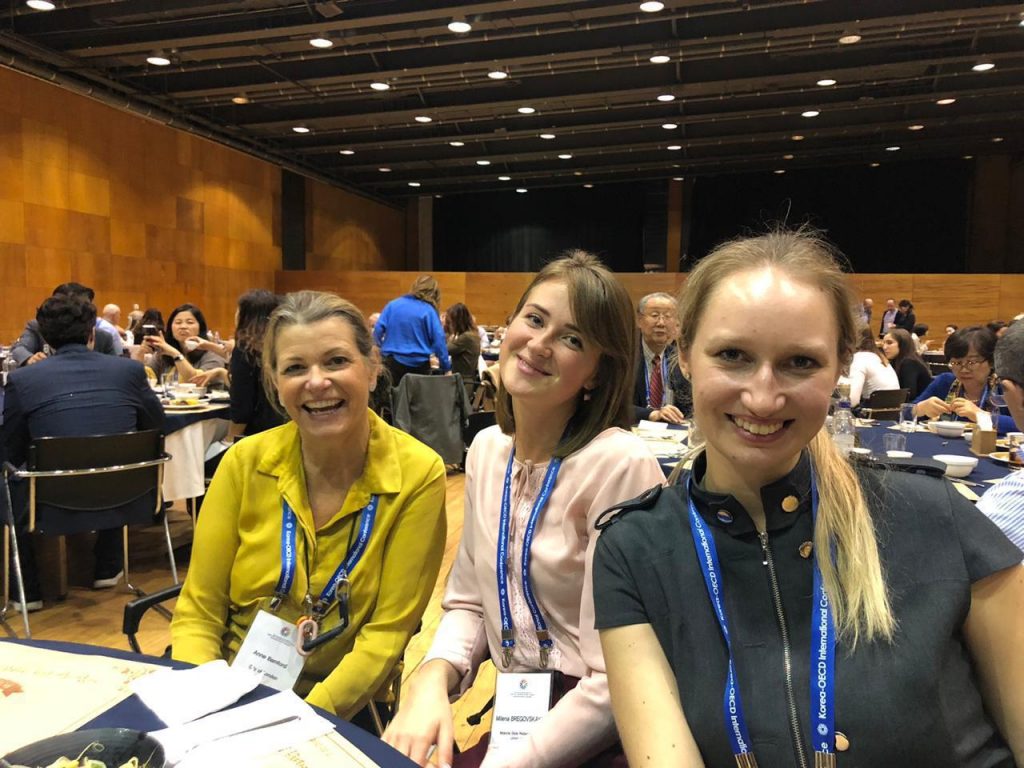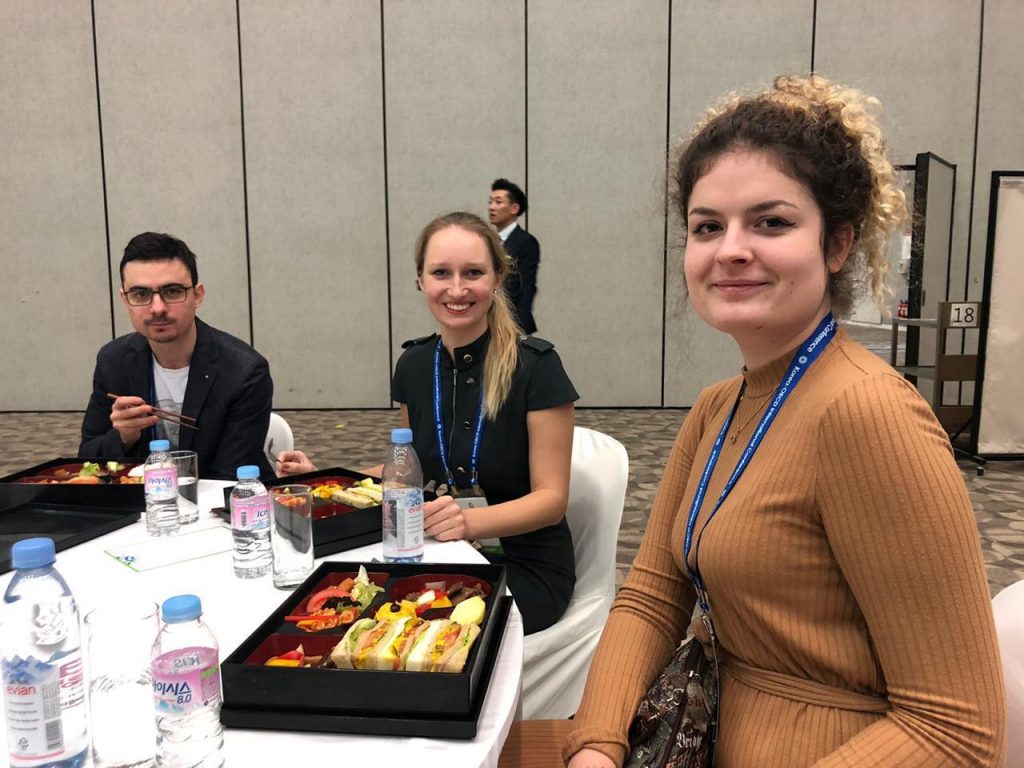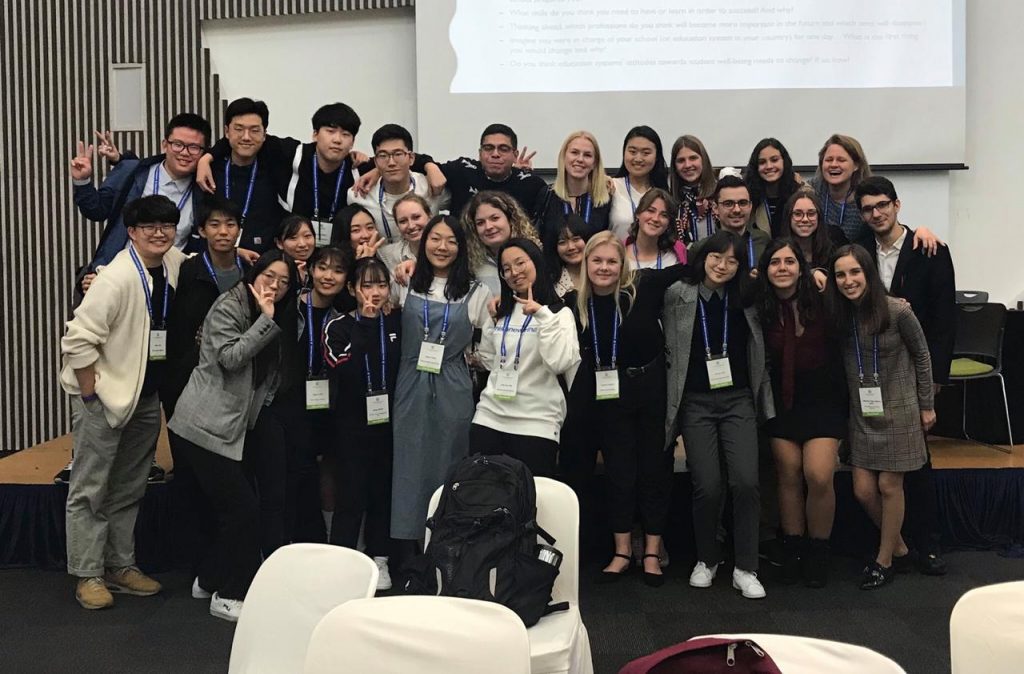The students of Moscow City University participated in the International Conference The Future of Education and Skills 2030 that was held under the aegis of the Organisation for Economic Co-operation and Development in South Korea from 23 to 25 October.
The Future of Education and Skills 2030 is an evolving learning framework that sets out an aspirational vision for the future of education. The 10th IWG meeting in South Korea was aimed at providing a common platform for government officials, practitioners and students who could share their insights on educational issues.
MCU selected 4 best students to represent the university and participate in the discussions on education assessment, pedagogies, and changes in curriculum. We met with Alina Komissarova, Anastasia Nikolaeva, Milena Bregovskaya, enrolled at the Institute of Foreign Languages and Anton Agapov, researcher at the Institute of System Projects, and asked them to share their impressions of this high-profile international event.
Tell about the format of the Conference and your role in it.
The topics suggested by the OECD were challenging and thought-provoking. Moreover, the format was quite interesting and inspiring, and we felt comfortable with it.
As MCU students we joined Focus Group 3 to share positive insight and discuss certain challenges that Russian education system faces. We dwelled on digitalisation and how it can be used for competing goals, the need for students to be in charge of their own learning, the types of skills that will be rewarded in the future and the need to innovate teacher education.
We also elaborated on wellbeing indicators such as work-life balance and life satisfaction. We highlighted strong support for the mutually reinforcing role of teacher and student well-being in principle but recognized that some system-level factors can potentially polarize teachers’ and students’ well-being.
What were the conclusions that your arrived at by the end of the discussions?
The fact is that knowledge and skills are both interconnected and mutually reinforcing. Delegates have emphasised the growing significance of being able to understand, interpret and apply knowledge and skills in various settings. Education systems around the world have been moving from defining subjects and required curriculum knowledge as collection of facts, towards understanding disciplines as interrelated systems. The key message runs that students need to learn core knowledge as a fundamental building block of understanding. They can also exhibit competencies based on knowledge and use their growing competency to update and apply their knowledge and deepen their understanding. As spokespersons for MCU we provided our perspective to this matter.
Curriculum change can frame important shifts in practice, culture and learning outcome. Many societies and systems are actively pursuing this transformation. Still, some teachers are critical to making the shift. Strong leadership from the top of society is required, but industrial models of implementation are not fit for the purpose. Delegates emphasised the time lag between pedagogy and assessment practice. Nowadays, the main purpose of assessment in national educational systems is to make judgements about students, teachers, schools. However, we need to support teachers in varying purpose and ways of assessing and giving feedback and show the relevance of assessment for students. Thus, it is high time to focus on deep foundations, sequence learning, and pursue strategic goals. In this respect, Andreas Schleicher, the OECD Director for Education and Skills, claimed that “We need to make the bridge between real life and the education system”.
Were there any enterntaining events included in the program?
Although a large amount of time was allocated to the discussions within the informal working groups, event managers organized lunches and dinners during which we were granted an opportunity to converse with representatives from all the three groups (FG1, FG2, FG3). From our perspective, those meals were great equalizers in the sense that students, teachers and government representatives alike mingled with one another and had a wonderful time exchanging stories and experiences. Additionally, on the third day of the conference (October, 25) we chose to visit a Korean school, which was an optional element of the programme. The aim of this event was to familiarize delegates with the reality of an innovative Korean curriculum, acquaint them with Korean school routine and see real students engaged in their everyday activities.
What are your impressions of visiting South Korea?
The thing we liked most about our time in Korea was the fact that we felt at ease wherever we went. Koreans showered us with hospitality and a friendly attitude not only at the conference, but also at the hotel and were ready to assist us with every potential issue that could arise. The cleanliness of the facilities struck me as astonishing: the underground, streets (even in the city centre), public buildings – everything is very well-maintained. The selection of food at the conference catered for all tastes, as there were elements of different cuisines, which was very thoughtful of the event managers.
And, of course, getting around the conference area was quite easy, because our hotels were within walking distance, therefore there was no need for us to plan our routes in advance. Travelling between different venues of the conference was also organized by the Korean managers, which freed us from the stress of going there on our own.
Will you continue contributing to the project, and, particularly, to the next meeting scheduled for spring 2020?
Yes, we will assist the Organizing Committee in recruiting students for working groups to participate in the meeting in Moscow. As student representatives, we will also participate in the survey on Facebook which is carried out between the IWG meetings by answering questions about school curriculum, current assessment systems and change that we would like to bring about to better the lives of students internationally.

